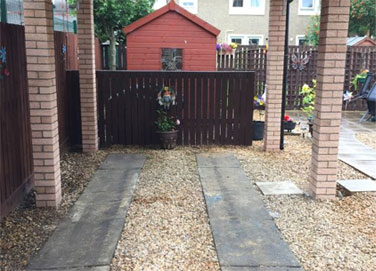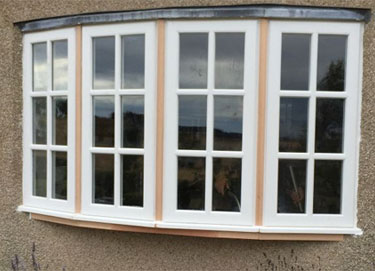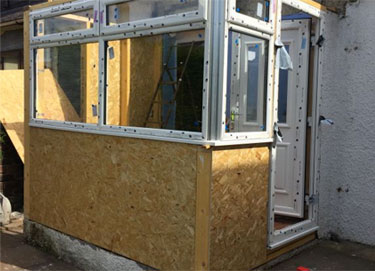Roofing – Cement Work
Cement is one of the most commonly used materials in the building trade and will likely play an increasingly important role in the future.
Cement is used at the bottom of your building for concrete foundations, it is also used to bond brickwork together and at the top of your building it is used to complete your roof with cement skews.
The roof and chimney area of any dwelling are the most exposed to the elements, taking the brunt of wind=driven rain, because they are at the highest point.
The cement mortar mix used for roofing is of a stronger composition (typically higher cement to sand ratio) than mortar used to fix bricks in the wall, for example.
Replacing Cement Skew Fife and Edinburgh
Skews are the blocks that sit on top of the party walls between tenement buildings and on top of the gable end walls.
They usually sit on top of the edge of the roofing slates or tiles, sealing the join between wall and roof and preventing the tiles or slates from lifting in the wind.
Skew stones may be butt jointed with lime mortar, or partly lapped with the adjacent stone as this helps to secure them and reduce the risk of water penetration at joints.
The outermost edge of the tiles where they meet the skew should be raised so that water runs away from the join. They will be sealed to the roof with metal flashing or a mortar fillet.
What Can Go Wrong?
Cement is commonly used throughout house construction because it is strong and versatile.
However, it is susceptible to age and can crack and even crumble from exposure to the elements over time.
The Good News
The good news is that cracked, crumbling or missing cement in your skews can be quickly, easily and safely repaired by a roofer with the correct equipment as soon as it is noticed.
Leave it unattended, however, and water will not only penetrate your roof space, but it will run under the remaining cement and tiles or slates and, with freezing and thawing, gradually push more cement out, creating major problems.
Cement Skew Problems and What to Look Out For
Look out for cracks in the skew stones, particularly the club skew, as this could lead to slippage of the skew stones.
If there are any signs of this, treat this as an urgent repair.
The club skew is the bottom stone, which must be fixed securely into the wall, as it anchors the other stones and prevents them from slipping.
As the skews are very exposed, mortar can wash away, allowing plants to grow.
Once a small plant takes root in a tiny space, its roots will grow and slowly widen the join, allowing water to percolate into the wallheads, causing a lot of damage.
In some locations, exposed skews can suffer from penetrating dampness.
Other Roofing Cement Work
Cement is used in mortar elsewhere around your roof, too.
The mortar joints between the brick work of your chimney can perish over time, which will affect the structural integrity of the stack.
Caught early, this can be simply treated by riddling out the old, ineffective mortar and repointing.
Another potential trouble spot is the flaunching, or mortar bed that holds chimney pots in place.
This is designed to shed water, so it cannot soak the joint. However, if the mortar perishes at this point, then water can first soak and then run straight into the property.
Professional Cement Skew Repairers Fife and Edinburgh | Cement Skew Work
Although repair work may appear straightforward, ensure your builder or tradespeople have the skills for the job.
If in any doubt, get a specialist roofing company to specify and organise the repair.
Guarantee That Means Something
All of our work is guaranteed.
You may have heard that before from other builders, but let us explain why we are different.
We are trusted and recommended members of the Federation of Master Builders, Guild of Master Craftsmen, the Construction Skills Certificate Scheme.
We’ve been in our premises in Thornton since 2008, so our customers know where we are if they have any questions once we’ve finished the job.
Contact Us
If you would like more information or a free estimate, we’d be delighted to hear from you.
Fife: phone 01592 747 047 Email: info@lcjoineryroofing.co.uk
Edinburgh: phone 0131 300 0494 Email: info@lcjoineryroofing.co.uk




